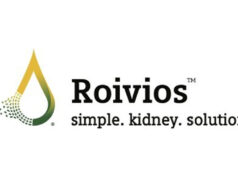 The Committee for Medicinal Products for Human Use (CHMP) of the European Medicines Agency (EMA) has granted a positive opinion recommending Jardiance (empagliflozin) for the treatment of adults with chronic kidney disease (CKD), Boehringer Ingelheim and Eli Lilly and Company has announced. Empagliflozin is currently indicated for the treatment of heart failure and type 2 diabetes in adults. When approved, empagliflozin’s indications in the EU will include adults living with chronic kidney disease (CKD), paving the way for an approach to managing the amplified risks of interconnected cardio-renal-metabolic conditions.
The Committee for Medicinal Products for Human Use (CHMP) of the European Medicines Agency (EMA) has granted a positive opinion recommending Jardiance (empagliflozin) for the treatment of adults with chronic kidney disease (CKD), Boehringer Ingelheim and Eli Lilly and Company has announced. Empagliflozin is currently indicated for the treatment of heart failure and type 2 diabetes in adults. When approved, empagliflozin’s indications in the EU will include adults living with chronic kidney disease (CKD), paving the way for an approach to managing the amplified risks of interconnected cardio-renal-metabolic conditions.
“EMPA-KIDNEY, the trial upon which the CHMP recommendation is based, demonstrated clear benefits on its primary outcome based on kidney disease progression and cardiovascular death in a broad range of adults with CKD,” said William Herrington, clinician scientist at the Medical Research Council Population Health Research Unit at the University of Oxford, UK, and EMPA-KIDNEY trial co-principal investigator. “The approval of empagliflozin should greatly help implementation of these important findings into clinical practice for people living with CKD,” added co-principal investigator Richard Haynes (University of Oxford, Oxford, UK).
The EMPA-KIDNEY Phase III trial included 6,609 adults across the spectrum of CKD severity with a wide range of underlying causes and co-morbidities, making EMPA-KIDNEY the “largest and broadest dedicated SGLT2 inhibitor trial in CKD to date”, according to a press release. Empagliflozin demonstrated “a significant kidney and cardiovascular benefit in adults with CKD”, reducing the relative risk of kidney disease progression or cardiovascular death by 28% versus placebo.
“Across the EU, more than 47 million people are living with chronic kidney disease and even more with cardio-renal-metabolic conditions,” said Carinne Brouillon, head of Human Pharma at Boehringer Ingelheim (Frankfurt, Germany). “We are very excited about the potential for empagliflozin to play a key role in the management of these interconnected cardio-renal-metabolic conditions.”











